
About Tetsushi Sonobe
Tetsushi Sonobe is Dean and CEO of the Asian Development Bank Institute.Linking Farmers to Markets Through Agricultural Cooperatives and E-Commerce in Asia
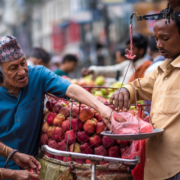
Market participation profoundly impacts farmers’ livelihoods and well-being by boosting household incomes and contributing to food and nutrition security.
Evaluating G7 Commitments on Climate Change, Health, Well-Being, and Agriculture

Accountability and transparency are fundamental principles of the G7.
Enhancing access to maternal and newborn healthcare in developing Asia
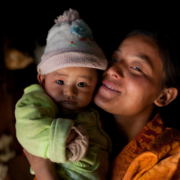
The health of mothers and newborns can reveal important clues about the quality and accessibility of healthcare services.
Can electric vehicles lead the way to a sustainable future?

Electric vehicles have increased through rapid efforts by governments to encourage environmentally friendly vehicles in the transportation sector.
COP28: Commitments, contradictions, contention, and challenges
By Jeetendra Prakash Aryal, Tetsushi Sonobe, Augusto Becerra Lopez-Lavalle and Dil Rahut. Posted December 14, 2023

The 28th Conference of the Parties (COP28) showcased significant advancements but also exposed new commitments, contradictions, contentions, and challenges.
COP28 and beyond: Linking agri-food systems, SDGs, and climate action
By Jeetendra Prakash Aryal, Tetsushi Sonobe, Augusto Becerra Lopez-Lavalle and Dil Rahut. Posted December 5, 2023
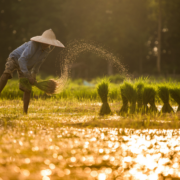
Historically, failure to bundle multiple measures, such as climate action, finance, and justice, into agricultural policies and programs has impeded progress across several SDGs.
COP, from pledges to progress: Navigating the climate change landscape for 27 years
By Tetsushi Sonobe, Dil Rahut, Raja Rajendra Timilsina and Shikha Chandrawat. Posted November 28, 2023
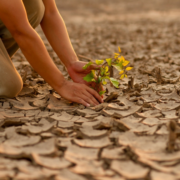
COP-28 aims to pave solid future pathways to address the urgency of the climate crisis as it reaches unprecedented levels.
Uniting the G7 and G20 to tackle climate change

The G7 and G20 recognize the paramount importance of innovation in steering economies toward a more sustainable future.
Managing water resources in agriculture can ensure food and water security
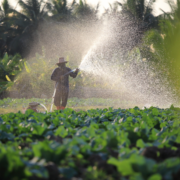
The unsustainable use of water resources in agriculture will have severe implications for future food and water security.
Hypertension, a ticking time bomb that can be stopped to save millions of lives

Hypertension affects 25% of the world’s population and can be a silent killer with no warning signs.


Search
Subscribe / Connect to Asia Pathways
Subjects
- Agriculture and natural resources
- Blog
- Capacity development
- Climate change
- Economics
- Education
- Energy
- Environment
- Finance sector development
- Gender
- Governance and public sector management
- Health
- Industry and trade
- Information and Communications Technology
- Infrastructure
- Miscellaneous
- Population
- Poverty
- Private sector development
- Regional cooperation and integration
- Sanitation
- Social development and protection
- Transport
- Uncategorized
- Urban development
- Video Blog
- Water
Recent Posts
- Unraveling the Health Risks of Climate Change
- Linking Farmers to Markets Through Agricultural Cooperatives and E-Commerce in Asia
- How Can Governments Support Electricity Distribution to Achieve Net Zero in Asia?
- Promoting Corporate Climate Action Through Greenhouse Gas Accounting
- Evaluating G7 Commitments on Climate Change, Health, Well-Being, and Agriculture




Recent Comments